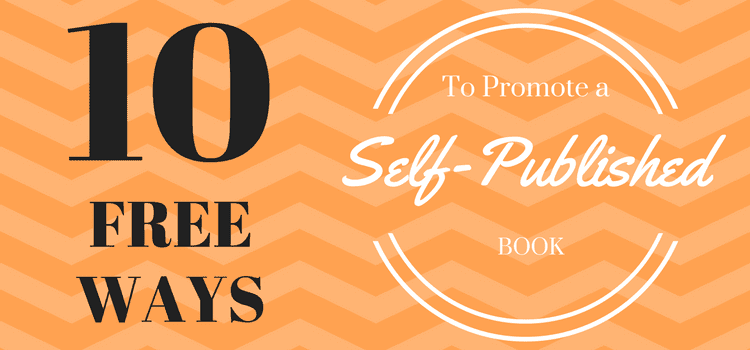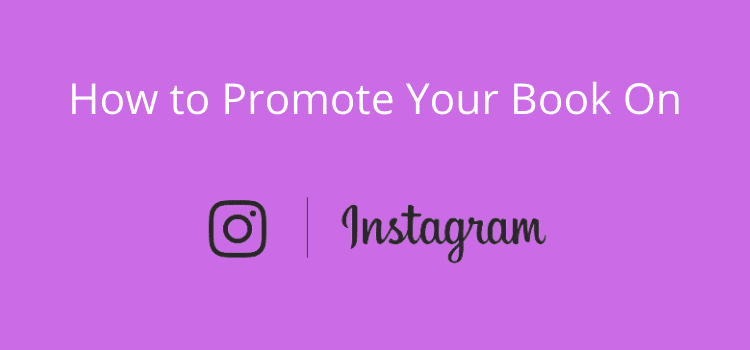
You’re a published author, so you know that it’s a challenge to promote self-published books or Kindle ebooks.
In an already crowded and competitive market, it can be hard work.
Well, unless you can get your book featured in the New York Times.
But usually, it will take patience, a lot of work, and a dose of old-fashioned good luck to get anywhere near the top of the tree.
What does book promotion do?
The first point is that active book promotion and marketing serve the purpose of attracting people to your book.
But then it is up to them to make a buying decision.
Promotion doesn’t involve two-way communication, which, by definition, would be direct selling.
You can’t force, cajole, or push people into buying your book.
From the outset, I should make it clear that I don’t classify myself as a successful author.
Nor am I a coach or expert on marketing.
However, I have used all of the following ideas at one time or another to help build my readership over the years.
My book sales don’t afford me champagne and caviar every evening.
But they do provide me with a side income, which is steady each month.
So, let’s look at what you can try to help your book sell.
10 Ideas to help you promote your books for free
There are many ways to get free book promotion ideas for your books.
But to get you started, here are ten ideas to promote self-published books that you can use straight away.
1. Use a Facebook Page
I made the mistake of using my personal Facebook profile for too long before realizing my error.
Keep your personal life away from your book marketing and set up a Facebook Page.
It’s much more professional and easier to manage. Another advantage is that you can use a pen name.
Also, a personal Facebook profile is limited to 5,000 friends.
A Facebook Page can have unlimited Likes and followers, so it is a better way to market your books and reach your target audience.
If you do happen to strike it lucky, you do not want to be limited to only 5,000 people.
Another huge benefit of a Facebook fan page is that you can sell your books directly from your Facebook Page.
2. Always be positive.
It doesn’t matter what form your communication takes. Whether it be posting on Twitter, Facebook, or another social platform, never be negative.
Even if you are insulted or get bad book reviews, do not react. Ignore and even block that user.
Keep what you post friendly, informative, and complimentary, and, of course, also add news or interesting tidbits about your books.
3. Use multiple Twitter accounts.
While it may have been frowned upon earlier, I believe multiple X (Twitter) accounts are a necessity for book promotion.
It serves to keep your main account, that is, the one using your name, relatively free of direct promotional material.
As it is the account you use to interact with friends and probably other writers, filling your timeline with book promotions will not go down well.
By setting up another account (or two), you can aim at different target groups to follow and build a new following.
Of course, you need to add content to these accounts, but there are many ways to automate the process.
Think about re-posting interesting bloggers, publishing book-related news stories, and selectively retweeting.
Then add your promotional content in between.
4. Use Pinterest and Flipboard.
Use these two sites to promote your books.
They are a terrific way to get your books and blog posts discovered and by an increasing audience because they all attract attention through book promotion images. A great tool for book covers!
Flipboard and Pinterest are second and third to Twitter for me as promo sites in attracting new traffic to my blog through social media, with Flipboard attracting more and more monthly traffic.
5. Write and publish under a pen name.
It may sound off-topic when discussing book promotion, but it’s an excellent way to experiment and try new writing ideas.
Amazon allows publishing under a pen name on your account, so it opens up a lot of possibilities.
I have used it to experiment with writing short novellas in new genres.
To do a little promotion and test the market, perhaps with free Kindle books, I use one of my secondary X accounts.
If it looks like it could work, you can then un-publish, change the cover and title, as well as make any other changes you think would improve the book, then republish under your name.
As you hold the rights to both names, there’s no problem in republishing the same book again under your name.
6. Blog, blog, blog.
Keep posting regularly and often on your blog, as every post you write adds to your search engine listings.
It’s the best free promotion you can get.
It is too easy to forget how important search engines are in bringing potential readers to you and your book.
Just make sure you stay on topic and don’t post trivial nonsense.
If you do an author interview on another blog or write guest posts, promote them on your blog or author website and social media sites.
If you want to go to the effort of setting up your own self-hosted WordPress blog, it is really worth the initial learning curve.
There are many free and paid tools and plugins available that can help increase your blog’s traffic over time.
7. Advertise your books on your blog.
Why fill your blog with a column of advertising for other products when you have your books to sell?
If you have a free ebook offer, tell your readers about it and direct them to your book page on Amazon.
Make sure that your ads click through directly to where readers can buy your books or get them for free.
Draft2Digital offers a free Universal Book Link that creates a link to all your ebook and book retailers, which is a fantastic book marketing tool.
You can submit your book to many free sites, but if you work hard to attract visitors to your blog, it can bring far greater rewards.
8. Feed your blog.
You want people to read your blog posts, so make sure you use a delivery service such as Follow It or Hootsuite, to post every new article on your blog to all your social media platforms.
Like a book, you also need to promote your blog posts to be successful.
Have prominent social media share and follow buttons on all your blog and website pages.
One share by someone with a big following on Facebook or X can attract a considerable spike in visits to your blog.
Social sharing is second only to organic traffic from search engines, so it is a big deal.
10. Have a website.
Old-fashioned now, perhaps, but a website is still the best way to provide long, detailed information about you and your books to your potential readers.
Again, it adds to your search engine presence and links to your blog and other social media platforms.
Of course, you can incorporate your blog and website into one site, but blog visitors usually want quick information.
Having prominent links from your blog to your books on your website serves to cater to readers who genuinely are interested in discovering more about your books.
There are always new ways to promote your self-published books.
Of course, you can promote self-published books in many more ways, and the items in the list above should not be taken as anything more than suggestions to consider.
No matter what techniques you use for book promotion or book launches, always think first about what your aims are and what you want to achieve.
Of course, you want book sales, but what route do buyers take to get there?
In my case, my main aim is to attract traffic and potential readers to my blog.
From there, people can learn about what I do and then perhaps be interested enough to investigate further.
One of my blog readers told me that he had bought one of my books – after having read my blog for over six months.
I think he is probably typical of many readers who have bought my books.
No one buys a book from an author they know nothing about.
So inform them.
Related Reading: Learn How To Sell Books On Amazon With These Simple Steps




I am still wondering about your advice to have more than 1 Twitter account
I would appreciate a blog just on this issue, to expand on what you have suggested
How to decide on names of accounts?
How to decide on content of multiple accounts?
Do all accounts hark back to your website/blog?
Thanks
I was wondering about your suggestion of having more than 1 Twitter account.
My blog contains articles on 3 subjects: dogs or German Shepherd Dogs (fewest blogs but I have a book coming on my life with German Shepherd Dogs – should I develop a page for that?)
Diet (I write many posts on the low carbohydrate diet but I do not have a book on that and am not thinking about one.) Should I have an account for this?
Religion – primarily Catholic – I write many posts on this topic but have no plans to write a book about it. Should I have a Twitter account for these?
Memoirs (I write posts about memories and have 3 books coming out that are memoirs. Should I develop a Twitter account that will showcase these books although they are on different topics?)
Thanks for your suggestions. I am trying to figure out a way to implement them.
Thanks for the confirmation – these are all things I’d planned to do and you’ve just reminded me that I’ve got tons of work to do, so I’d better hop to it…SMILE!!!